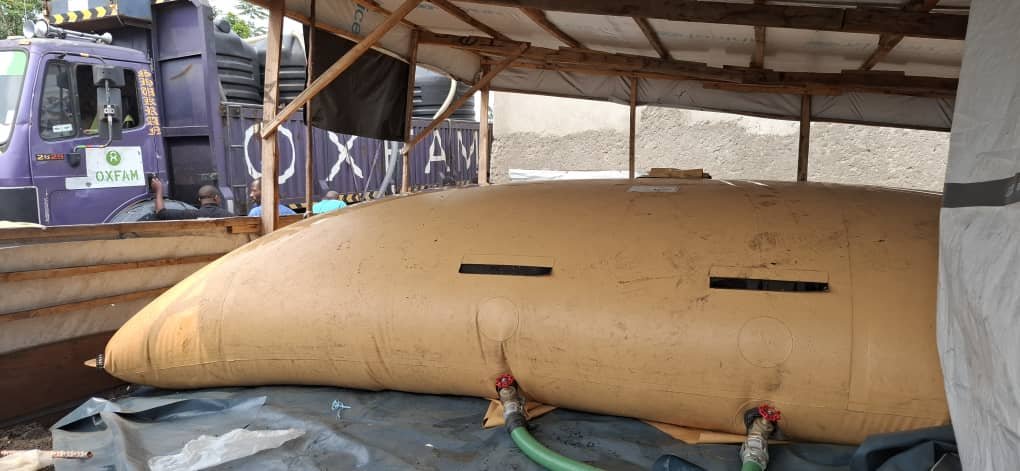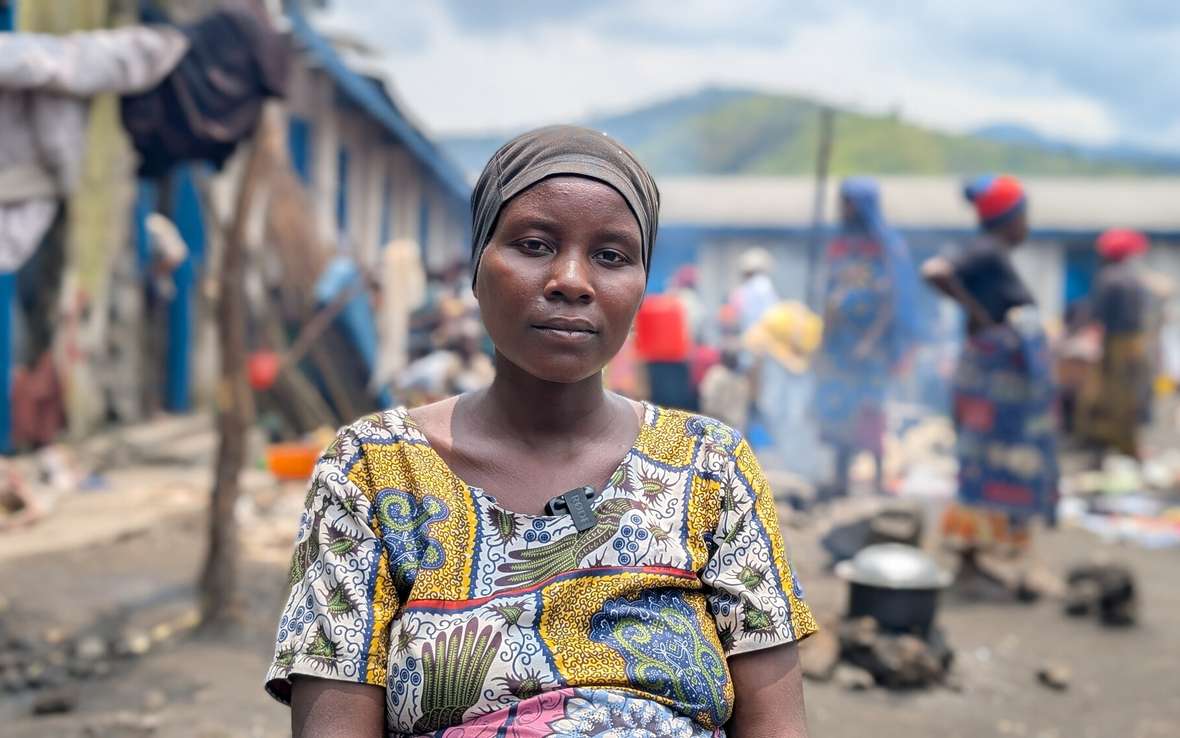In the Democratic Republic of Congo, a health emergency, armed conflict, and a lack of aid are exacerbating the humanitarian crisis.
In the Democratic Republic of Congo (DRC), Charmante Muhawe is one of many women fighting every day to provide for her children in conditions no one should ever have to endure.
Living in a camp in Sake, far from her home, this is not her first time being displaced.
"Our conditions for sleeping are really poor. There is no shelter and currently shared by many of us. Most of the time, we go entire days without having not even a single meal,” she says.
More than 27 million people are in need of humanitarian assistance in the Democratic Republic of Congo (DRC), where a full-blown health emergency tied to internal displacement, coupled with the cuts to lifesaving aid from the U.S., is leading to grim reality for people in the eastern regions of the country.
Spread of Ebola compounds fragile situation
After decades of conflict, in January 2025 the crisis escalated after M23 fighters seized the eastern city Goma and ordered displaced civilians to return to their villages. As millions returned home, they found their communities reduced to rubble.
To make matters worse, cases of Ebola have been confirmed in DRC. Ebola in Kasai Province is particularly worrying given the level of humanitarian crisis prevailing in the country and funding which is at its lowest.
In Kinshasa, which is already experiencing cholera outbreak, the spread of Ebola could have catastrophic consequences.
“People are drinking water straight from contaminated rivers and springs because water tanks and sanitation facilities have been destroyed. When you combine this with a collapsed health system, cholera is spreading like wildfire,” said Oxfam DRC Country Director, Dr Manenji Mangundu.
Meanwhile, women and children are particularly vulnerable, with UNICEF reporting that children could account for 35-45 percent of nearly 10,000 cases of rape and sexual violence in January and February 2025 alone. Since July, the UN registered 67,000 incidences of rape in the previous five months.

Struggles marked by scarcity and lack of access
Access to clean water is one of the biggest challenges facing Charmante and millions of others. In places like Sake and Minova, 500 people are sharing a single water tap.
“I had to borrow a jerrycan [from] other displaced families so I can be able to at least store some water for my family” Charmante says.
One of the most worrying and immediate issues due to a lack of clean water is the threat of a cholera and MPOX outbreak. From January to July, more than 35,000 suspected cholera cases and at least 852 related deaths had been reported – an average of more than four deaths every day and a 62 percent increase compared to 2024.
To exacerbate the crisis, the decision by the Trump administration to cut lifesaving aid has pushed humanitarian efforts in the country to the brink of failure.
Kamara Wabomundu, an agent at the Goma Health Zone Central Office, said he fears for the people in the region due to cholera. “They have survived the bombardments, but cutting off assistance could lead to more deaths than the war,” he said.
A ray of hope
Despite a crumbling aid system, increased fighting, and destroyed infrastructure, Oxfam and its local partners like AVUDS, Centre de Développement Intégral de l’Enfant Rural (CEDIER – Center for the integral development of the rural child) and Solidarité pour la Promotion Sociale et la Paix (SOPROP, a civil society organization promoting peace and social cohesion) continue to deliver lifesaving assistance.
Together we are helping displaced people in North and South Kivu with food, clean water, sanitation, cash assistance as well as hygiene kits for women and girls. We are also constructing water systems and building latrines.
"I received a jerrycan, a bucket, soap, and even a piece of cloth. This solved part of our daily problems. Before that, I didn’t even have anything to fetch water with. In the past we would get more but we are told that there isn’t much to offer the population," explains Charmante, who says that some families have not been reached with the support.
Oxfam aims to assist more than 400,000 people, and to support people returning to their regions of origin. And since February 2025, we have reached 109,652 people. Plenty of work remains to be done.
Oxfam is also working to contain the Ebola outbreak. “Although the government has experience in managing Ebola, the DRC is under active war in the east, which might affect its ability to coordinate preventive measures throughout the country,” said Mangundu.
“We need an immediate injection of funds, and all warring parties to commit to a permanent ceasefire and allow aid to flow freely. After six months of chaos, people need dignity and respite from relentless violence. The world cannot look away,” added Mangundu.
